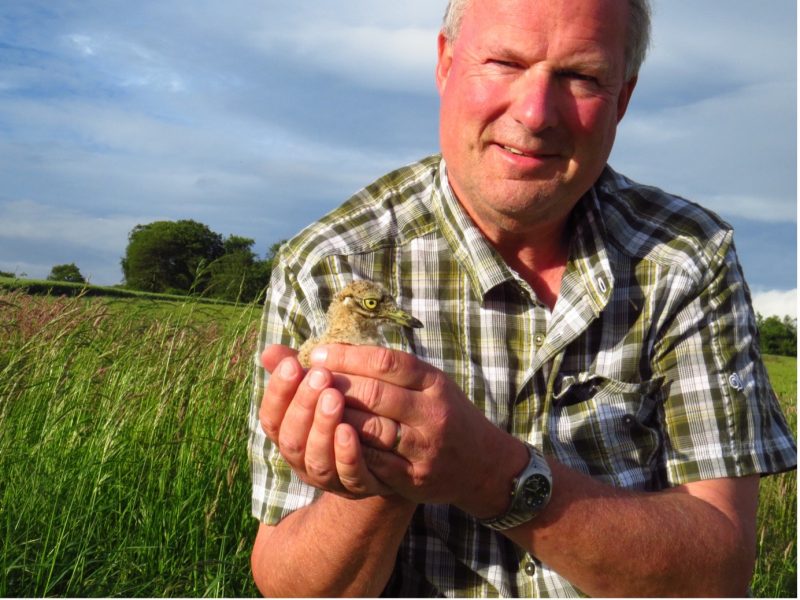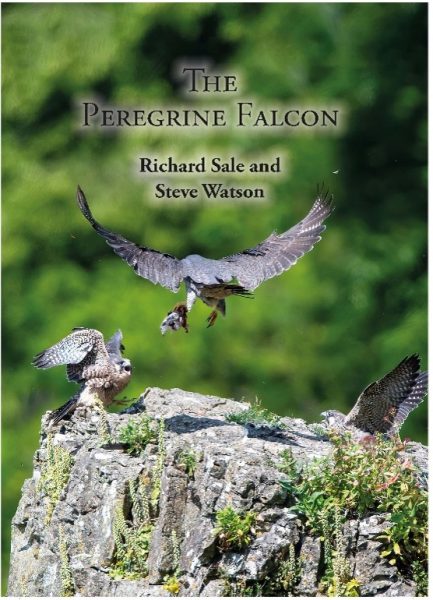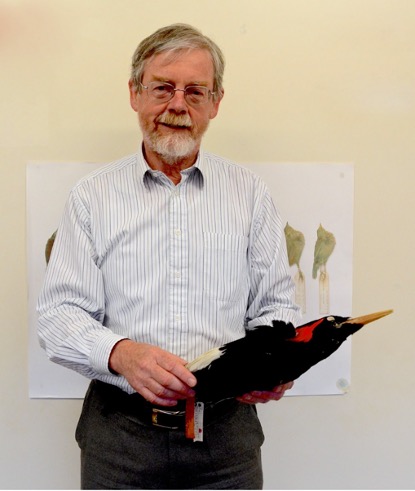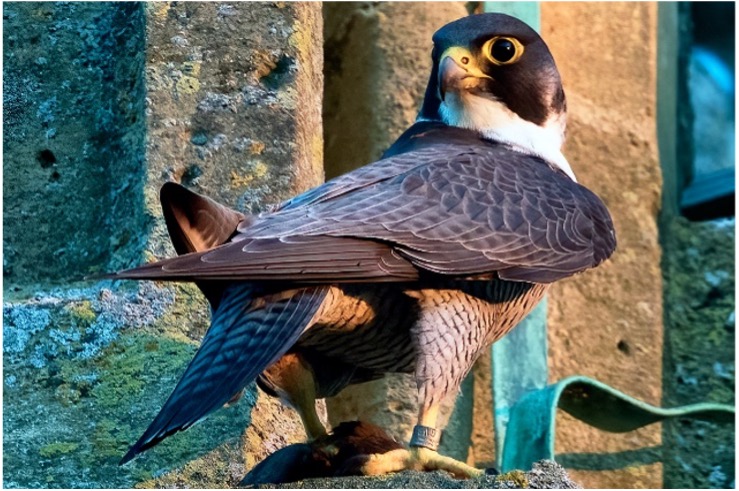All talks are available on YouTube.
Monday 27 November
Keith Betton I Saving the Stone-curlew
Keith Betton was County Recorder for Hampshire from 2010-2022 and is currently Chair of the Hampshire Ornithological Society. Since 2009 he has also been part of a small RSPB team that conserves the Stone-curlews that breed in the Wessex region. With help from external funding, the RSPB set up the conservation programme to save the Stone-curlew in the early 1990s, working with farmers and landowners to manage areas to provide suitable undisturbed nesting sites. The nests are carefully monitored and if farming operations need to take place when the chicks are mobile great care is taken to protect them. Stone-curlews have now been downgraded from Red to Amber listed and the population is rising. In Wessex this means an increase from about 50 pairs in 1992 to 150 pairs today. Without help and intervention these fascinating birds would be unlikely to survive alongside modern farming. The project has been a huge success.

Monday 6 November 2023
A Wild Dove Chase | Special Event with the Linnean Society
A special lecture in collaboration with the Linnean Society: On Rock Doves and the process of ‘extinction by hybridisation’.
The Rock Dove (Columba livia) is the wild form of the domestic pigeon. Unlike the domestic pigeon, which is one of the most well-studied birds, the Rock Dove has been overlooked by biologists in recent decades. Following hybridisation with feral domestic pigeons, Rock Doves are now extinct across much of Europe.
Our work in the UK and Ireland identified Rock Dove populations which have experienced limited interbreeding with feral pigeons. As well as having important conservation implications, the identification of such populations provides scientific opportunity – both as a case study with which to study the process of ‘extinction by hybridisation’, and by providing a valuable natural comparison of interest to the many scientists who study domestic pigeons in laboratories.

Will Smith is based in Oxford, where he recently completed a PhD in Zoology at the Edward Grey Institute of Field Ornithology. He studies avian genomics, using Rock Doves in Scotland and Ireland as a case study to explore wild-domestic hybridisation. He is also interested in Britain’s non-native birds, the impact of parasite infection on evolution, and the application of citizen science in zoological monitoring. Find him on Twitter at @WJSmith97.
Monday 22 May 2023
Dr Richard Sale and Steve Watson introduced their ground breaking book The Peregrine Falcon. The Peregrine Falcon is a comprehensive 528-page book on this most iconic raptor and it investigates all aspects of Peregrine life, from plumage, through diet, population dynamics, breeding and survival.
 Signed copies of the book will be available for purchase on the night at the discounted price of £45. The talk will not be Zoomed live but will be recorded and put up on YouTube shortly afterwards.
Signed copies of the book will be available for purchase on the night at the discounted price of £45. The talk will not be Zoomed live but will be recorded and put up on YouTube shortly afterwards.
The talk will include 4K HD video and images demonstrating up-to-date science and biology of the Peregrine Falcon and all 19 (up for debate) sub-species..
Modern technology (inertial measurement units built by RS) and analyses of breathing, bone structure and eyesight have been used to study the flights, particularly stooping hunts, which have made Peregrines famous as arguably the fastest creature on the planet. The physics of flight and stooping speed is rigorously assessed using basic scientific principles, and a detailed analysis of eye biology, together with observational empirical evidence, allows the authors to suggest greater Peregrine visual acuity than has previously been claimed by the scientific community.
Dr. Richard Sale is an Astrophysicist and author, having co-authored several books on raptors including the Poyser ‘The Gyrfalcon’ and ‘The Snowy Owl’. He has also co-authored self-published books on ‘Steller’s Sea Eagle’, and ‘The Eurasian Hobby’. He wrote the New Naturalist title ‘Falcons’ and authored the self-published ‘The Common Kestrel’ and ‘The Merlin’. He was awarded the ‘US Wildlife Society Book of the Year’ in 2006, 2019 and 2021.
Steve Watson is a retired Chartered Accountant who has conducted a 40-year study into the Peregrine Falcons at Symonds Yat and is a Trustee of the Gloucestershire Raptor Monitoring Group CIO, Raptor Aid CIO and a committee member of South West Peregrines. He produces and fronts presentations on Peregrines and Goshawks for RSPB groups, BTO and Wildlife organisations throughout the UK.
Monday 27 March
Robert Prŷs-Jones – Wallace’s Sarawak bird collections and the development of his ornithological knowledge
Abstract: The integration of information from the diaries/notebooks of important 19th-century ornithologists with that from their specimens and accompanying labels can provide intriguing insight into the development of their interest in, and knowledge of, avifaunas. Two key examples, involving major collections now largely held by the Natural History Museum at Tring, comprise Allan Octavian Hume (see Prŷs-Jones 2022. Arch Nat. Hist. 49(2): 391-407) and Alfred Russel Wallace, the subject of this talk. Although already a highly experienced collector of South American fauna, Wallace had no first-hand knowledge of the South-east Asian fauna when he arrived there for an eight-year visit in 1854. From early November 1854 to January 1856, he was based in Sarawak, and this talk aims to integrate information from his specimen labels and his field notebook listing of “Birds collected in Borneo” to unravel how his skill in identifying the birds he collected there increased over time.
Biography: Robert Prŷs-Jones is now a Scientific Associate of the Natural History Museum (NHM), having been in charge of its bird collections in Tring for nearly 25 years, from 1992 to 2016. After studying for a D.Phil. at the Edward Grey Institute, Oxford, he worked on a diversity of ornithological research on Aldabra in the Seychelles, Dominica in the West Indies and in Australia, before taking up a lectureship at the Percy FitzPatrick Institute, University of Cape Town, South Africa. Returning to the U.K., he was in charge of the British Trust for Ornithology’s estuarine bird research from 1987 to 1992, prior to assuming his post in the NHM. His ornithological career has been spent learning “a little about a lot”, though he now has a particular interest attempting to “add value” to the historic NHM bird collections through close study of the specimens in combination with wider relevant data associated with them.



